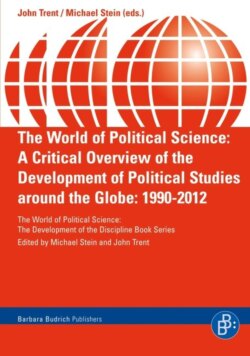Читать книгу The World of Political Science - Группа авторов - Страница 18
На сайте Литреса книга снята с продажи.
4.3. Key framing questions
ОглавлениеThe nature of the regime heavily determines the key framing questions for Korean political scientists to ask. Military dictatorship by Chung Hee Park mostly encouraged academics to keep a low profile. The key framing question was “how is Korean politics played out?” The approach was very empirical, focusing on Korean opinions and actions mostly placed within the framework of American political science, especially with the increasingly hegemonic behavioral approach. Chung Joo Yun was a pioneer in the Korean behavioral approach to politics, with his book, the Korean Political System (1961).
Two events shaped the key framing question in the post-Park and post-developmental state period. By “post-Park period” I mean the period of military dictatorship increasingly exposed to popular scepticism and resistance. By post-developmental state I mean the popular search for what is beyond wealth accumulation through state-led development at any cost. The key framing question in the post-Park military dictatorship period (1989-2000) was: “What could and should democratic citizens do to unravel military dictatorship and state-led economic developmentalism?” What Korean political scientists deemed to be excesses of military dictatorship and state-led developmentalism came under increasing scrutiny. Representative of the works during this period was Jang Jip Choi (1990), Korea University. With his conceptual apparatus adapted from American political science, especially that of critical political economy, Jang Jip Choi, led the period. Assassination, coup d’état, rebellion and suppression filled the newspaper headlines year by year while Korea emerged as a newly industrializing economy and one of the four Asian tigers during this period.
The key framing question during the democratization period (1989-2000) is: “How can one nurture a genuinely democratic politics in Korea?” The question is both conceptual and empirical. The perspective from which this key question is asked varies tremendously from one person to another. Some ask the question on declining regionalist voting in presidential elections. Others ask the question in terms of the impacts of non-governmental organizations and internet politics. Some others ask about identities and international relations. Democratization was ushered in and democratic consolidation became a catch phrase of Korean political science. While their perspectives have diversified, the tradition of involving academics in politics continues. One of those most faithful to the academic endeavor of the period of democratization is perhaps a scholar residing abroad. Doh Chull Shin, University of Missouri, produced major works on Korean democracy. His perspective has been shifting, albeit within the framework of democratization. Initially he emphasized the limits of democratization in Korea, with its emphasis on the lack of a strong democratic value commitment. Then he shifted his emphasis to the political culture aspects of Korean democracy, saying that some cultural traits are somewhat difficult to tame, even when Korean democracy reaches its mature phase.
Thus the key framing questions of the three major periods, starting with Park’s military dictatorship are very different, reflecting the key agenda of each period. Most noteworthy is the threefold expansion of political scientists after democratization was ushered in.
